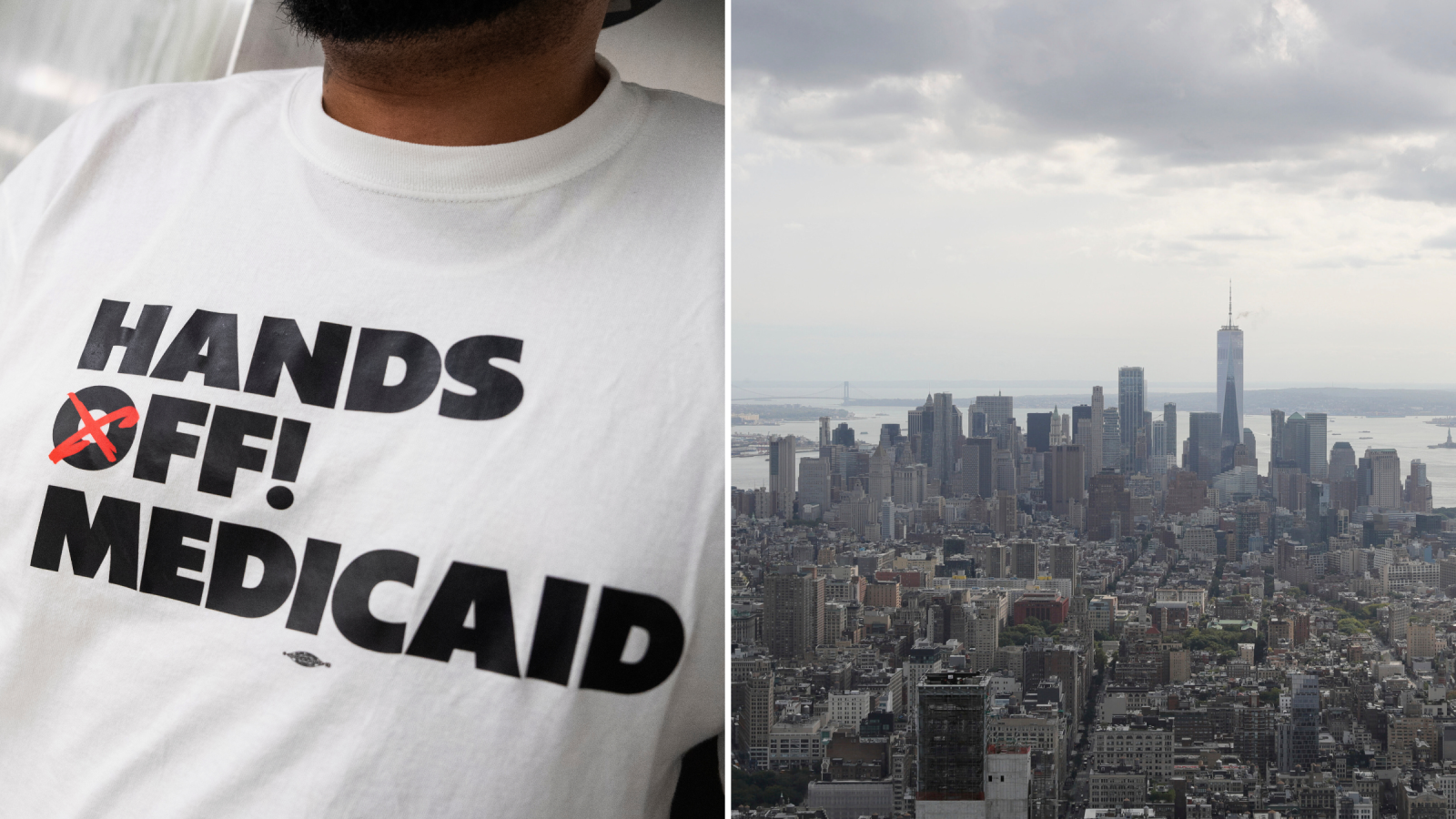By Jasmine Laws
Copyright newsweek

An audit has found that New York State of Health (NYSOH), run by the state’s Department of Health, paid $2.7 billion in Medicaid managed care premiums for members who may have left the state.The audit, released earlier this month, indicated that State Comptroller Thomas P. DiNapoli found multiple issues with how the state identified out-of-state Medicaid members.This is not the first time “weaknesses” in NYSOH’s system have been found, a spokesperson for DiNapoli told Newsweek.They said: “Our Medical Claims unit continually evaluates risks to the Medicaid program. In this case, previous audits revealed weaknesses in the NYSOH system. We conducted further risk assessment of NYSOH and identified members who had updated their addresses to an out-of-state location.”Newsweek has contacted the New York Department of Health via email for comment.Why It MattersMedicaid has been under the spotlight since President Donald Trump took office in January, with his Department of Government Efficiency (DOGE) starting a major probe into Medicaid spending.With emphasis placed on removing “waste, fraud and abuse” from the system, the way states have been operating the federal health program has been particularly scrutinized.Some conservative groups and lawmakers have been citing extremely high levels of improper payments made across Medicaid services, which they argue demonstrate a need to shake up the system and improve efficiency.However, according to KFF, in a 2024 report covering the years 2022, 2023, and 2024, the Centers for Medicare and Medicaid Services said the Medicaid’s improper payment rate was about 5.1 percent—which is much lower than what some of these conservative groups have said.What To KnowAccording to the State Comptroller’s Office audit, there were various issues with the way the New York Department of Health identified whether members resided outside the state—although some of these issues were “rectified” by the department during the audit, the office said.The audit uncovered $1.2 billion spent in managed care premiums for Medicaid members who may have been living outside of New York.Additionally, it was found that the state Department of Health did not start submitting NYSOH-enrolled member data for Public Assistance Reporting Information System (PARIS) matching until May 2017—three years after NYSOH started.PARIS is a service that conducts matches on the enrollment data of public assistance programs, including Medicaid, across all 50 states and the District of Columbia.The department did not start reviewing the PARIS match results until 2019—meaning that $1.5 billion in premiums was paid between 2017 and 2019 for unreviewed members.The spokesperson for the State Comptroller’s Office told Newsweek that the $1.5 billion in payments identified “were made to [Medicaid Managed Care Organizations] for members who were not reviewed by [the state Department of Health] to confirm whether they resided in [New York state].””The members were identified in PARIS, the federal system, as having benefits made in more than one state,” they added. “A review to confirm the member’s residency for that period is needed to determine if the payments were appropriate.”The audit found that Florida, New Jersey and Pennsylvania represented the other state residencies for 35 percent of the premium payments.This means that a total of $2.7 billion could have been spent in overpayments by NYSOH for Medicaid care premiums for members potentially living out of the state.The spokesperson confirmed this to Newsweek, saying “the total potential overpayments could be as high as $2.7 billion.”The State Comptroller’s Office gave an example of one member who had been living in Florida since 2020, despite NYSOH paying 45 monthly premium payments totaling $100,859 on behalf of the member—from June 2020 to February 2024.$299 million in premium payments that were paid for members whose eligibility was ended or closed had also not been recovered.In order to prevent payments being made for members living out of state, the State Comptroller’s Office recommended that NYSOH “verify the residency of members identified by a PARIS match who were not reviewed, as well as members identified as potentially residing outside of the State by data sources other than PARIS, and recover improper premium payments, as appropriate.”The office also advised that the department review the $299 million in premium payments for members whose eligibility was closed or not properly closed, and “make recoveries, as appropriate.”What People Are SayingDiNapoli said in a statement: “Medicaid is a vital program and the single biggest expense in the state budget. We cannot afford any wasteful spending. If a person is enrolled in more than one state at the same time, both states may end up paying premiums to his or her managed care plans. Responsibility for preventing enrollment in more than one state lies at both the federal and state levels, and stronger coordination is needed to reduce improper payments, protect the program’s integrity, and ensure New York is only paying Medicaid costs for its residents.”The State Comptroller’s Office spokesperson told Newsweek: “Medicaid costs represent a significant part of the [New York state] annual budget. As part of the Comptroller’s constitutional and statutory requirements, our Medical Claims Unit performs a continuous audit to determine whether eMedNY (DOH’s Medicaid claims processing system) reasonably ensured that Medicaid claims were processed in accordance with requirements, the providers submitting claims were approved for participation in the Medicaid program, and that the amounts paid to providers were correct.””The audit work may identify patterns and trends in claims and payment data that require further follow-up and analysis as part of the Comptroller’s audit responsibilities. Additionally, the Medical Claims Unit performs additional audits of Medicaid areas identified through ongoing risk assessment activities.”What Happens NextAccording to the State Comptroller’s Office press release on the audit, the state’s Department of Health officials “generally concurred with the audit recommendations and indicated that it was already taking steps to address them.”The department also agreed to explore the use of other data sources to identify out-of-state members.



